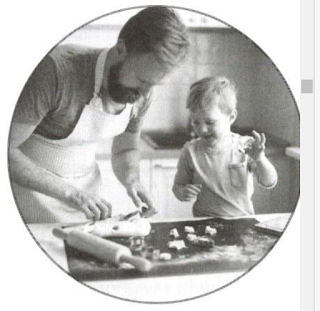Part 3.- Multiple choice
For questions 31-36, read the text ‘A lot can happen in a
year abroad’ on and answer the questions below choosing the correct option A,
B, C or D.
A lot can happen in a year abroad.
Like many students before her, studying abroad had a
profound affect on Sarah Morrison.
As I sat staring out at California’s spectacular Big Sur
coastline, I felt fortunate to have a sister who had persuaded me to spend a
year of my degree abroad. It seems that there are not enough older siblings
explaining just how easy it is to take part in an international exchange.
While most universities offer worldwide exchanges, where
students swap places with others from all over the world for a semester or a
year during their degree, the number and quality on offer, together with the
cost and time spent abroad, vary dramatically.
A deciding factor for me in choosing to study at the
University of Edinburgh was the fact it offered more than 230 exchange places
at overseas universities in the US, Canada, Australia, New Zealand, India,
China, South Korea, Japan, Singapore and South America.
Despite all this choice, I
still found that deciding to spend a year abroad was something of a novelty,
with most of my friends giving more thought to embracing Edinburgh than packing
theiir bags to leave a city that had only just become their home. Yet,
fortified by my sister’s advice and a Californian friiend who told me I would
love the coast, II applied to spend my third year the University of California,
Berkeley – never guessing that this would affect almost every future decision I
would make.
From the start of your exchange, you are aware that the time
you have in your new country is limited and not to be wasted. Your experience
is shaped by a predetermined start and end, which immediately increases the
significance of the time in between.
From the first week I arrived, I started to work at The
Daily Californian, Berkeley’s student newspaper. I moved from an
international house with more than 600 students from all over the world into a
co-operative house where 60 of us shared responsibility for management of the
building. I met people from Calcutta, Cairo and
Chile, and learnt that holding on to any stereotypes I might have about
Americans would be about as useful as
assuming that all European people lived on farms.
The grades I earned at Berkeley didn’t actually count
towards my degree classification at Edinburgh. However, I studied under a
Pulitzer Prize-winning poet, signed up for student-led seminars and took an
African American literature class that shaped my dissertation in Edinburgh.
Whether I was learning about contemporary poets on a tour of San Francisco or
reporting on the President’s speech in San Francisco for the next day’s
newspaper, my stay there enabled me to return to Edinburgh with an increased sense
of awareness about what I wanted to gain from my English literature degree.
While the expertise might seem like an initial barrier to
international exchanges, in reality they can actually save some student money.
Visas, health insurance and flights to the chosen country will have to be
bought, but a student will usually only be charged 25 to 50 per cent of their
home university’s annual fees. A student travelling abroad is entitled to a
larger student loan, and grants are available at many institutions for students
going on an exchange.
Taking part in an exchange may no appeal to all students. We
have to research the options independently, apply almost a year before you go
away and be aware of the grades required in the first year to qualify for a
place on one. Even so, Edinburgh’s international exchange offer, Helen Leitch,
says: ‘If I had a pound for every time that students told me it was the best
experience of their life, I would be a very wealthy woman indeed.’
31.- One reason Sarah became a student at Edinburgh
University was that…
A) she could first study abroad and then move to Edinburgh.
B) her sister had previously studied at Edinburgh.
C) she could do part of her studies at a suitable university
abroad.
D) most of the students at Edinburgh spend a year at an
overseas university.
32.- How did Sarah feel when she went to Berkeley?
A) She was pleased to find the people were exactly as she
had expected.
B) She knew she wanted to make the most of her stay there.
C) She wanted to get a job rather than begin studying
immediately.
D) She began to wish her stay there could be a little
shorter.
33.- What does Sarah feel she achieved at Berkeley?
A) She formed a clearer idea of what her long-term
aims were.
B) She took the first steps towards becoming a
teacher.
C) She developed her poetry-writing skills
significantly.
D) She ensured that she would graduate with a
first-class degree.
34.- What does Sarah say about the cost of an international
university exchange?
A) As a student you can get reduced rates for health
insurance.
B) Your fees may be cut by half for every year for your
course.
C) It can be cheaper overall than studying in your own
country.
D) Taking cheap flights abroad can save you a lot of money.
35.- What does ‘one’ refer to in line 64?
A) an international exchange as part of a university course.
B) a research degree at a university in another country.
C) a university course that is paid for by the government.
D) the first year of a university course in your own
country.
36.- What does Helen Lietch suggest in the final paragraph?
A) Students who do international exchanges often go to
become extremely rich.
B) Most students who’ve done an international exchange
believe it was highly worthwhile.
C) Only standards from rich families can afford to do an
international exchange.
D) She should be paid a far higher salary for organizing
international exchanges.








.jpg)